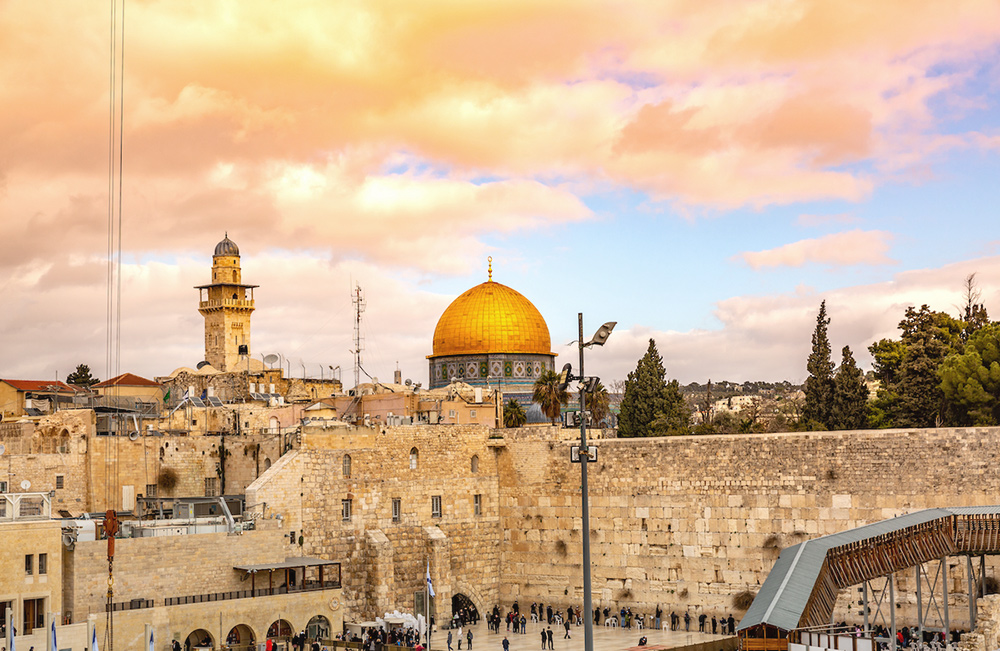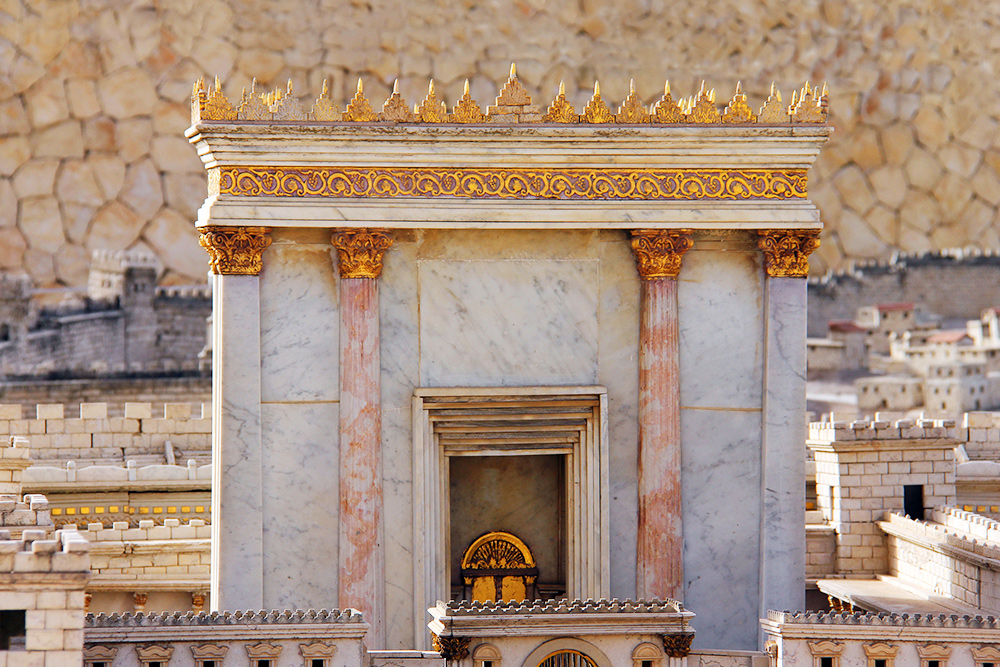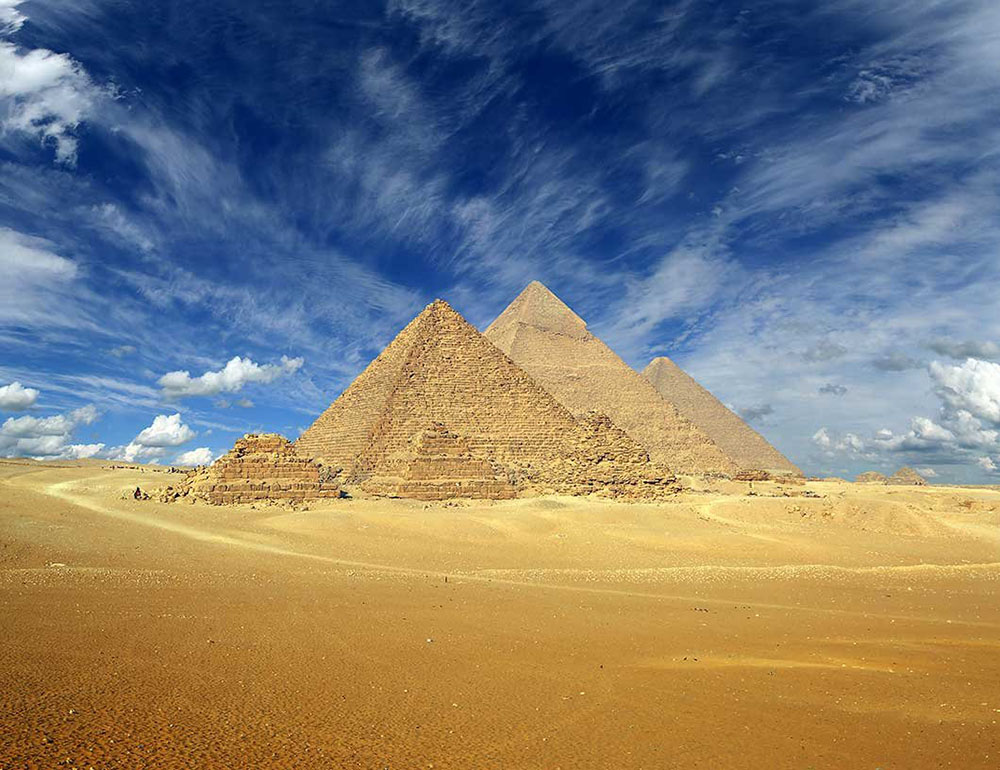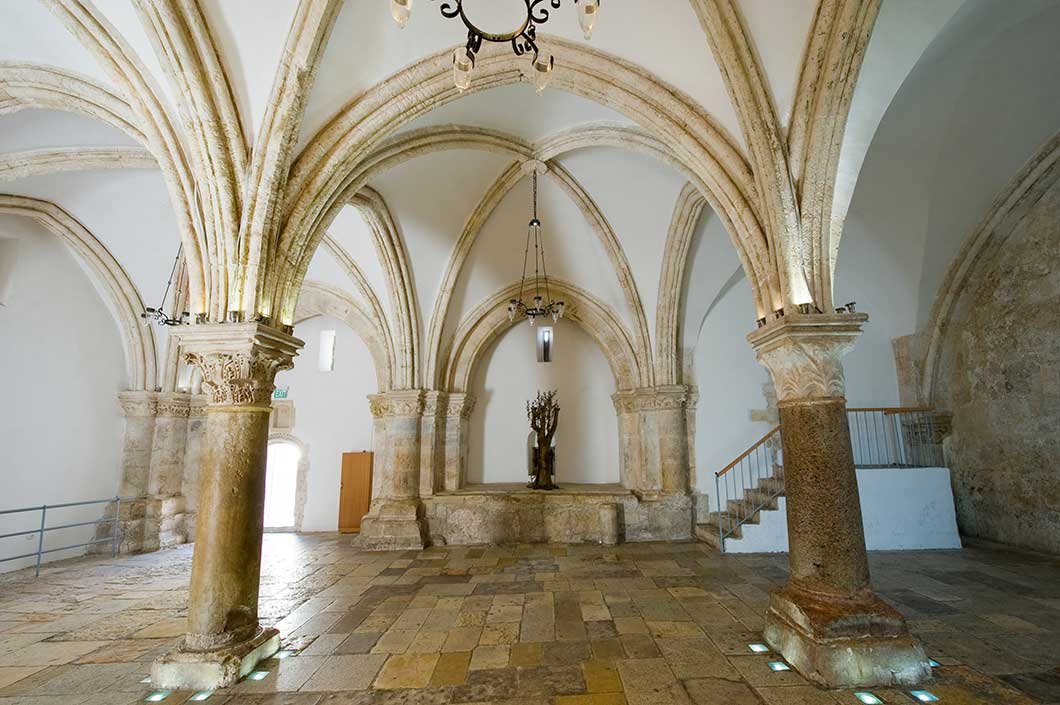More Essays and Insights by Dr. Noel
Below and following are links to and brief excepts from articles that Dr. Noel has published within the last few years.
Salt of the Land
 January 30, 2018
January 30, 2018
Our Judeo-Greek New Testament (Matthew 5:13) preserves the words of Jesus to his disciples - "You are 'the salt of the land'" - τo ἅλας τῆς γῆς (pronounced as to halas teis geis). He did not say, “You are the salt of the earth,” as the phrase is popularly translated. What did he mean by that? To fully appreciate the meaning of Yeshua's words we must consider them in their native cultural context. That means we must examine His words in Hebrew as well as Greek.
The Hebrew word for “land” is אֶרֶץ (eretz). After all, the ancients did not have a concept of "the planet Earth" as we do today. When Jesus said, “you are the salt of the land,” He was referring specifically to the “Land of Israel”. In Biblical Hebrew, “salt” is מֶלַח (melach) and it is an “indestructible mineral”. That is why the idea of salt not being salty any more and yet still being called salt makes no sense. His listeners would have recognized this....
A Branch From David
 January 13, 2018
January 13, 2018
In Matthew 2:23 we learn that Jesus’ family settled in the small town of Nazareth, “in order that what was spoken through the prophets might be fulfilled, that he should be called a Nazarene.” This prophecy, however, appears nowhere in the Hebrew Bible.
Is Matthew guilty of inventing a messianic text? Absolutely not – he is simply employing a Jewish hermeneutical technique called “Midrash.” The key to interpreting this statement lies in recognizing a wordplay between “Nazareth” Ναζαρέτ (nazaret) and “Nazarene” Ναζωραίος (nazoraios).
The wordplay is based on Isaiah 11:1 and the Hebrew word נצר (netzer) meaning, “branch” or “shoot.” The word occurs only here, but its messianic significance is well attested to in the Dead Sea Scrolls....
Why Was the Temple Destroyed?
 March 19, 2018
March 19, 2018
Many people today think that the destruction of the Jerusalem Temple was caused by the Jewish people's so-called rejection of Jesus. But according to Matthew 23, the Pharisees (not the Jewish people) were responsible for the Temple’s destruction. According to Jesus' words in Matthew, they (as distinct from other Jews) bore the guilt of, “all the righteous blood shed on earth, from the blood of righteous Abel to the blood of Zechariah … whom you murdered between the sanctuary and the altar (vv. 34-35).
We are not sure of the exact context of His words, but the Shepherd of Israel was clear - the Pharisees of that generation were bound to those who murdered the prophets of Israel, whether they realized it or not. Jesus held them responsible for the shedding of innocent blood both in Israel's ancient past and in his own time...
Abomination in the Temple
 May 7, 2017
May 7, 2017
Recent events have once again revived concern that the world is coming to its apocalyptic end. Yet despite renewed tensions between the United States and Russia, and Iran’s constant threat to vaporize Israel, that concern remains premature. Yeshua, after all, said, “You will hear of wars and rumors of wars. See that you are not alarmed, for this must take place, but the end is not yet” (Matt 24:6). So when does the end come?
Yeshua answers this question in Matthew 24: 15: “When you see the abomination of desolation … standing in the holy place.” In this verse, Yeshua alludes to שִׁקּוּצִים מְשֹׁמֵם (shikutzim meshomem) translated as “abomination of desolation”, described in Daniel 9:27. Matthew 24: 15-28 describes the appearance of the abomination of desolation and the period of intense tribulation that it unleashes upon the nation of Israel. Matthew’s readers are to understand that this time period begins when they see “the abomination that causes desolation” is standing in the holy place (v. 15)...
Righteousness According to Yeshua
 April 9, 2017
April 9, 2017
In Matthew 5:20 Jesus tells his disciples “ … unless your righteousness exceeds that of the scribes and Pharisees, you will never enter the kingdom of heaven.” But what exactly does Jesus mean by “righteousness”?
The Greek word δικαιοσύνη (dikaiosune) “righteousness” corresponds to צְדָקָה (tzedakah) in the Hebrew Bible. “Righteousness” refers to moral behavior that conforms to God’s Law. For example, the psalmist writes, “Judge me, O Lord, according to my righteousness” (Ps. 7:8). The psalmist here asks God to evaluate him based upon his faithful obedience to the Torah’s commandments...
A New Moses for a New Exodus
 March 20, 2017 (rev. September 5, 2021)
March 20, 2017 (rev. September 5, 2021)
Themes of Israel’s redemption permeate the Gospel of Matthew. In Matthew 2:13–15, the gospel writer presents Yeshua as a new Moses who leads the nation in a new exodus from Egypt.
After the Magi have departed, an angel of the Lord appears to Joseph in a dream for a second time. He commands Joseph to take the child and his mother and escape to Egypt...
Matthew then attaches to the narrative what scholars refer to as a “fulfillment citation,” consisting of a formulaic statement (“In this way what was spoken by the Lord through the prophet was fulfilled”) and a quotation drawn from Hosea 11:1: “Out of Egypt I called my Son” (v.15b). Matthew’s application of this text to the life of Yeshua has generated enormous controversy, to put it mildly...
Why don’t Christians celebrate Yeshua’s resurrection on the third day after the Passover?
 April 26, 2016, reprinted September 5, 2021
April 26, 2016, reprinted September 5, 2021
...How did the Last Supper become so utterly detached from the Passover? We know from the Gospels that the resurrection of Yeshua took place on the third day after the Passover. Shouldn’t Christians follow this timeline and celebrate Yeshua’s death and resurrection during the same time period?
As I write this on April 3, 2016, Passover is still almost three weeks away. Yet on the Western church’s liturgical calendar, Easter—the celebration of Yeshua’s resurrection—has already come and gone. Protestants and Catholics observed Easter on March 27th of this year. Christians in the Eastern church won’t celebrate Easter until May 1st of this year, nine days after Passover begins...
Wrong Answer, Bible Answer Man!
 March 8, 2016, reprinted September 5, 2021
March 8, 2016, reprinted September 5, 2021
Strategically timed to coincide with the virulently anti-Zionist and anti-Semitic Israel Apartheid Week taking place on college campuses around the world, the 2016 Christ at the Checkpoint (CATC) Conference began this week in Bethlehem.
The conference, which is hosted by Bethlehem Bible College, claims as its mission the task of challenging “Evangelicals to take responsibility to help resolve the conflicts in Israel/Palestine by engaging with the teaching of Jesus on the Kingdom of God.”
The theme of this year’s conference is “The Gospel in the Face of Religious Extremism.” However, the only religious extremism conference participants seem to have in mind is Zionism. Munther Isaac, who spearheads the conference, delivered a paper entitled “Christian Zionism as Imperial Theology...”
